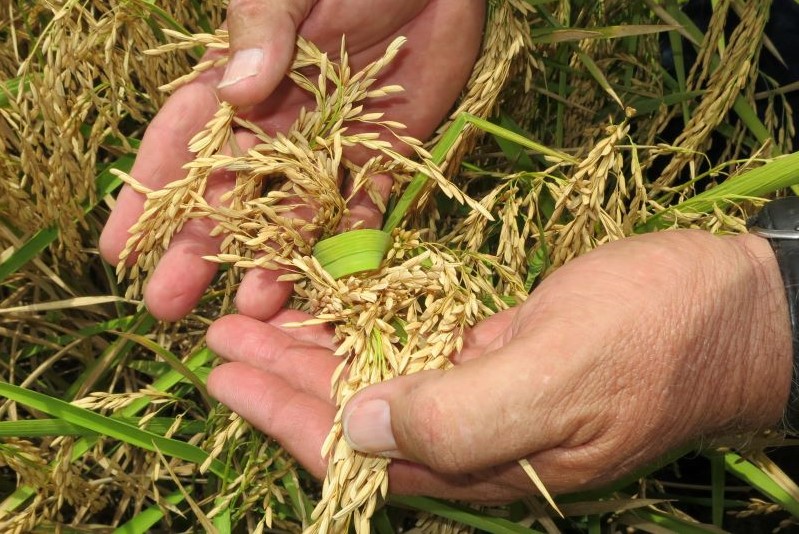By Jennifer Dorsett
Field Editor
Wheat and rice farmers may soon have a new tool in the fight against fungal disease.
A consortium of researchers from the University of Exeter recently published research saying they have identified novel mono-alkyl lipophilic cations (MALCs), which protect crops against Septoria leaf blotch in wheat and leaf blast disease in rice.
Commercial antifungals to treat these and other fungal diseases are currently available, but microbial resistance is common and requires continual development of new fungicides.
In their research, the professors write that 85 percent of currently used fungicides target single fungal enzymes, which can be overcome by single-point mutations in the fungus.
This challenges food crop security and leads to the increase in use of multi-site fungicides.
“We are in an arms-race against crop pathogens to secure our future food security,” the report said. “The rapid development of resistance in market-leader chemistries makes the identification of new fungicides a priority.”
The researchers wrote focused on fungal disease that impact rice and wheat, because collectively, these crops provide two-thirds of total calories in human diets worldwide, particularly in impoverished countries.
But MALCs work in a different manner, according to the researchers. MALCs inhibit the activity of fungal mitochondria, the powerhouses responsible for producing cellular energy. As cellular energy supplies decrease, the pathogen is eventually killed.
The scientists, led by Professor of Cell Biology Gero Steinberg, observed additional modes of action in an MALC they named C18-SMe2+. According to their research, this MALC works by targeting fungal proteins inside the mitochondria that seem to initiate a “self-destruct” response in the fungus, causing massive cellular death at a much faster rate.
When applied to crops, C18-SMe2+ activates the plant’s natural defense systems and prepares it for subsequent attacks of the same type.
Researchers also demonstrated the novel MALC shows no toxicity to plants, is not mutagenic and is less toxic to aquatic organisms and human cells than existing fungicides used currently.
“It is the combined approach of Exeter scientists providing skills in fungal cell biology, fungal plant pathology, human cell biology and synthetic chemistry that enabled us to develop and characterize this potent chemistry,” Steinberg said. “The university has filed a patent in recognition of the potential of this novel chemistry. We now seek partners or investors to take this development to the field and prove its usefulness under ‘real agricultural conditions.’ Our long-term aim is to foster greater food security, especially in developing nations.”

